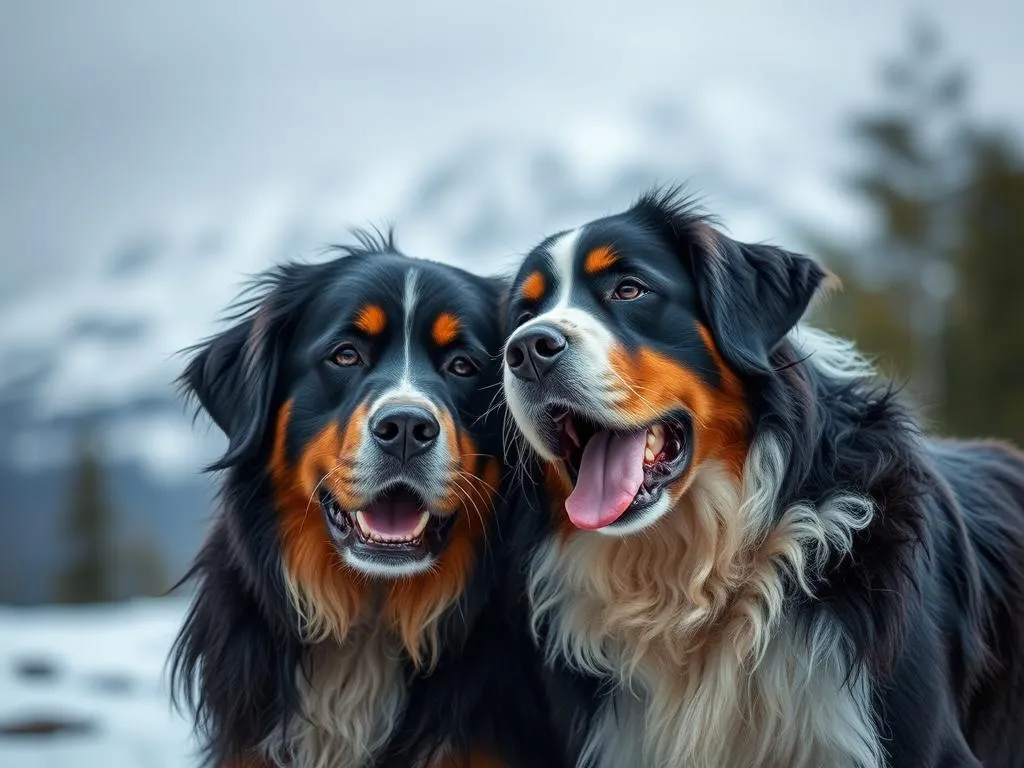
When it comes to choosing a dog breed, potential dog owners often consider a variety of factors, including temperament, size, and grooming requirements. One aspect that is frequently overlooked but equally important is odor. While all dogs can develop a distinctive smell, the intensity can vary significantly from breed to breed. In this article, we will explore whether Bernese Mountain Dogs have a stronger odor compared to other breeds, delving deep into the factors that contribute to dog smells.
Understanding Dog Odor
What Causes Dog Smell?
Dog smell is a natural phenomenon, and several factors contribute to it:
- Natural Body Oils: Dogs produce natural oils that can accumulate on their skin and fur, leading to an odor. This is a normal process and varies by breed.
- Diet and Nutrition: The food dogs consume plays a crucial role in their body odor. Poor-quality food or ingredients that don’t sit well with a dog’s system can lead to increased odor.
- Skin Conditions and Allergies: Health issues can exacerbate dog odors. Skin infections, allergies, or other dermatological conditions often lead to a stronger smell.
Factors Influencing Dog Odor
Several factors influence the level of odor in dogs:
- Breed Characteristics: Some breeds are genetically predisposed to have a stronger smell due to their skin type and coat.
- Grooming Habits: Regular grooming can significantly reduce odor. Dogs that are bathed and brushed frequently will typically smell fresher.
- Living Environment: Dogs that spend a lot of time outdoors or in damp environments may develop a stronger smell.
Overview of Bernese Mountain Dogs
Breed Characteristics
Bernese Mountain Dogs are large, sturdy dogs known for their striking tri-color coats. They are gentle giants with a friendly temperament, making them excellent family pets. Their affectionate nature and intelligence make them easy to train, but they do require regular exercise and socialization.
Grooming Needs
Grooming is essential for maintaining the health and cleanliness of a Bernese Mountain Dog.
- Coat Type and Shedding: Their thick, double coat sheds year-round, with heavy shedding occurring in the spring and fall. This coat type can trap odors if not maintained properly.
- Recommended Grooming Practices: Regular brushing (at least once a week) is crucial to remove dead hair and prevent matting. Bathing should be done as needed, typically every few months or when they become particularly dirty.
Common Health Issues
Bernese Mountain Dogs are prone to certain health issues that can affect their skin and odor:
- Skin Conditions: Conditions like hot spots or pyoderma can lead to a strong smell. These issues often arise from allergies or infections.
- Allergies and Their Impact on Odor: Allergies can cause itching and inflammation, leading to secondary infections that contribute to odor.
Comparing Odor Levels Among Dog Breeds
Generally Smelly Breeds
Certain breeds are notorious for their strong odors:
- Basset Hound: Known for their loose skin and droopy ears, Basset Hounds often have a strong smell due to their oily skin.
- Bloodhound: Famous for their tracking abilities, Bloodhounds have a strong odor that comes from their unique skin structure and droopy ears.
Low Odor Breeds
On the other end of the spectrum, some breeds are known for being low odor:
- Basenji: Often referred to as the “barkless dog,” Basenjis have minimal odor due to their grooming habits and coat type.
- Poodle: With their curly coats, Poodles tend to trap less dirt and dander, resulting in a fresher smell.
Bernese Mountain Dogs in Context
So, where do Bernese Mountain Dogs fit into this odor spectrum? While they may not be in the category of the most fragrant breeds, they don’t typically rank among the worst-smelling dogs. Their thick coat can retain odor if not groomed properly, but with consistent care, they can be relatively low in odor compared to breeds like Basset Hounds or Bloodhounds.
Do Bernese Mountain Dogs Smell Worse Than Most Dogs?
Anecdotal Evidence
Owner testimonials can provide valuable insights into the odor levels of Bernese Mountain Dogs. Many owners report that their dogs have a pleasant, natural scent when regularly groomed and maintained. However, some owners have noted that neglecting grooming can lead to a buildup of odor, particularly during shedding seasons.
Scientific Studies and Findings
While there may not be extensive scientific research specifically comparing the odors of Bernese Mountain Dogs to other breeds, studies have shown that diet, grooming, and health significantly impact a dog’s smell. Factors such as skin conditions and allergies are crucial in determining odor levels across different breeds, including Bernese Mountain Dogs.
Expert Opinions
Veterinarians often emphasize the importance of regular grooming and health monitoring to manage odor levels. They note that Bernese Mountain Dogs, like any breed, can develop a stronger smell if they experience skin issues or if their grooming is neglected. Overall, with proper care, they can maintain a pleasant odor.
Managing Dog Odor
Regular Grooming Practices
To keep your Bernese Mountain Dog smelling fresh, consider implementing the following grooming practices:
- Bathing Frequency and Techniques: Bathing your dog every few months is generally sufficient, but if they get particularly dirty or smelly, don’t hesitate to give them a bath. Use a gentle dog shampoo that won’t irritate their skin.
- Brushing and Coat Care: Regular brushing helps to remove loose fur and dirt, allowing air to circulate through their coat and reduce odor. Aim for at least once a week, or more often during heavy shedding seasons.
Diet and Nutrition
A well-balanced diet is essential for minimizing odor.
- Foods That Impact Skin Health and Odor: Look for high-quality dog food that contains omega fatty acids, which promote healthy skin and coat. Avoid foods with fillers that could lead to allergies or skin issues.
- Supplements That Can Help Reduce Odor: Omega-3 fatty acid supplements can help improve skin health. Probiotics may also support digestive health, leading to less odor overall.
Health Monitoring
Monitoring your dog’s health can help prevent odor issues:
- Signs of Underlying Health Issues Contributing to Odor: Watch for signs of skin infections, excessive itching, or changes in their coat condition. These can indicate underlying health problems that may be contributing to odor.
- When to Seek Veterinary Advice: If you notice a sudden increase in odor or any other concerning symptoms, consult your veterinarian. They can diagnose potential health issues and recommend appropriate treatments.
Conclusion
In summary, Bernese Mountain Dogs do not inherently smell worse than most dogs. Their odor levels can vary significantly based on grooming habits, diet, and overall health. While they may not be the freshest-smelling breed, with proper care and attention, they can maintain a pleasant scent. Individual care practices and health monitoring play a crucial role in managing any dog’s odor. Understanding these factors can help potential dog owners make informed decisions and ensure a happy, healthy environment for their pets.








